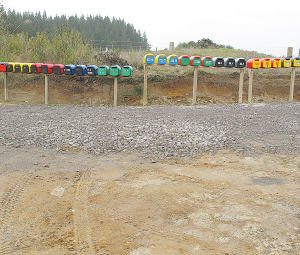Applications Open for 2026 NZI Rural Women Business Awards
Applications are now open for the 2026 NZI Rural Women Business Awards, set to be held at Parliament on 23 July.
 A proposal to reduce postal delivery frequency from five days to three days per week in rural areas has irked farmers.
A proposal to reduce postal delivery frequency from five days to three days per week in rural areas has irked farmers.
Rural Women New Zealand (RWNZ) says proposed changes to rural deliveries mean NZ Post is putting commercial viability ahead of the needs of rural communities.
Earlier in the year, the Ministry for Business, Innovation and Employment (MBIE) started seeking feedback on changes to NZ Post's minimum obligations as a mail service under its Deed of Understanding.
Included in those changes were a reduction in delivery frequency from five days to three days per week in rural areas; a reduction in the minimum number of post offices from 880 to 500 across the country with consideration to shrink that number further to 400; and an allowance for NZ Post to convert existing delivery points into communal points at a rate of up to 5% per year.
When the proposed changes were announced, MBIE general manager, communications infrastructure and trade, James Hartley said the changes were due to a decline in usage over the past 11 years since the Deed of Understanding was last amended.
"New Zealanders are sending less mail than ever before," Hartley says.
"Compared to 20 years ago, we send around 813 million fewer mail items, and this is expected to further decline to around 100 million by 2028.
"We recognize the importance of the mail service, particularly to rural and older New Zealanders, and would like to hear feedback about how people are currently using the mail service and how the proposed changes would work for our communities."
However, in a submission on the proposed changes, Rural Women New Zealand says the changes are "concerning".
"NZ Post is abandoning any quality of service and putting commercial viability ahead of the need for rural communities to access basic postal services," the submission states.
The organisation argues the proposals will severely impact rural communities, the elderly and disabled people, saying they will be forced to wait longer and travel greater distances to clear their mailboxes or send a parcel as a result of the changes.
The organisation argues that the changes need to be scaled back and alternative options need to be considered.
"No consideration has been given to alternative options, such as a different model for postal services."
The organisation also states that geographic criteria for setting the placement of postal services needs to be included in the Deed of Understanding. This, they argues, would allow for the cost of getting to and from a postal service and the physical distance to be factored into the decision-making.
"This would help ensure a minimum level of service for rural communities and avoid NZ Post making decisions that are detrimental to rural communities."
Consultation on the Deed of Understanding closed last week.
Controls on the movement of fruit and vegetables in the Auckland suburb of Mt Roskill have been lifted.
Fonterra farmer shareholders and unit holders are in line for another payment in April.
Farmers are being encouraged to take a closer look at the refrigerants running inside their on-farm systems, as international and domestic pressure continues to build on high global warming potential (GWP) 400-series refrigerants.
As expected, Fonterra has lifted its 2025-26 forecast farmgate milk price mid-point to $9.50/kgMS.
Bovonic says a return on investment study has found its automated mastitis detection technology, QuadSense, is delivering financial, labour, and animal-health benefits on New Zealand dairy farms worth an estimated $29,547 per season.
Pāmu has welcomed ten new apprentices into its 2026 intake, marking the second year of a scheme designed to equip the next generation of farmers with the skills, knowledge, and experience needed for a thriving career in agriculture.

OPINION: Here w go: the election date is set for November 7 and the politicians are out of the gate…
OPINION: ECan data was released a few days ago showing Canterbury farmers have made “giant strides on environmental performance”.